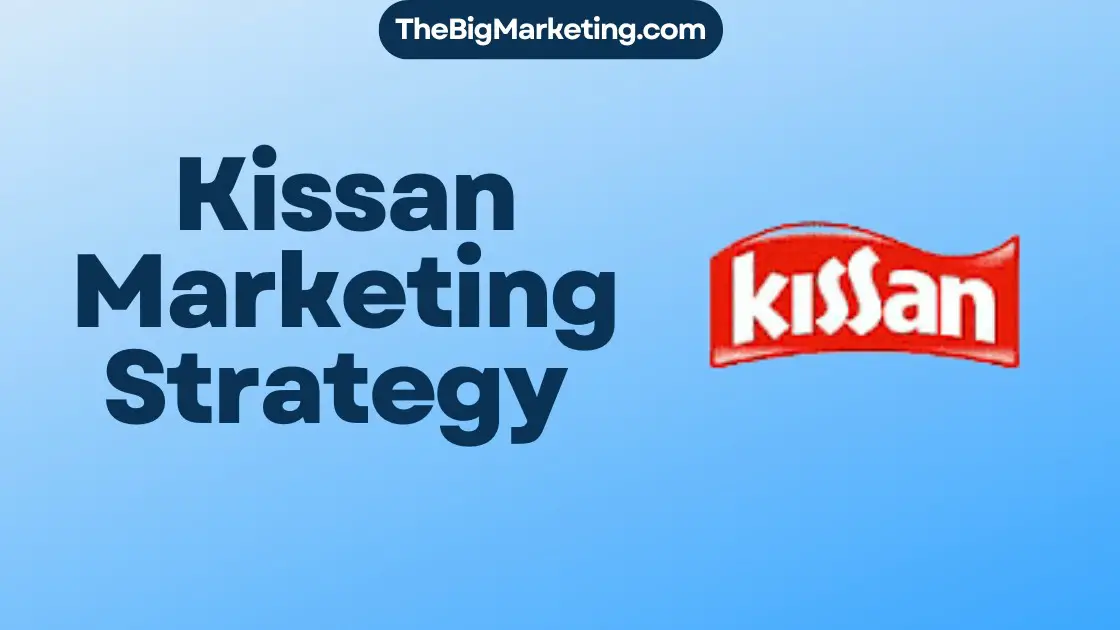Marketing is an essential aspect of any business, playing a pivotal role in its growth and success. But what exactly are the benefits of marketing, and why is it so important? This article will dive deep into the advantages of marketing and shed light on its significance for businesses of all sizes.
Key Takeaways:
- Marketing offers increased visibility and brand recognition
- It drives customer engagement and boosts sales growth
- Marketing provides market understanding and a competitive advantage
- It fosters customer loyalty and aids in product development
- There are various types of marketing strategies to suit different business needs
Understanding Marketing and Its Importance
Marketing is the action or business of promoting and selling products or services. It plays a crucial role in the growth and success of a business. Marketing helps businesses create awareness about their offerings, attract customers, generate sales, and build brand loyalty. It involves various activities such as market research, product development, advertising, sales promotions, and more. Without marketing, businesses may struggle to reach their target audience and compete in the market effectively.
Marketing is not just about advertising and sales; it encompasses the entire process of identifying customer needs, creating valuable products or services, and delivering them to the right audience. It is the bridge between a business and its customers, establishing connections and building relationships.
One of the fundamental principles of marketing is understanding the importance of customer satisfaction. By focusing on meeting the needs and wants of customers, businesses can develop products or services that align with market demands. This customer-centric approach allows businesses to stay relevant and competitive in today’s dynamic market.
Marketing also plays a vital role in shaping a company’s reputation and brand image. Through effective marketing strategies, businesses can communicate their values, differentiate themselves from competitors, and create a positive perception among consumers. Strong branding builds trust and credibility, encouraging customers to choose a particular brand over others.
The Role of Marketing:
- Creating awareness: Marketing helps businesses get noticed and make their presence known in the market. By utilizing various strategies, such as advertising, public relations, and content marketing, businesses can reach a wider audience and introduce their offerings to potential customers.
- Attracting customers: A well-executed marketing campaign can attract customers and pique their interest in the products or services being offered. Through targeted messaging and appealing offers, businesses can entice potential customers to engage with their brand.
- Generating sales: Marketing efforts ultimately aim to drive sales and generate revenue for a business. By crafting persuasive marketing messages, offering compelling deals, and creating a sense of urgency, businesses can encourage customers to make a purchase.
- Building brand loyalty: Marketing goes beyond acquiring new customers; it also focuses on building long-term relationships with existing customers. By delivering exceptional customer experiences, providing value beyond the initial purchase, and maintaining consistent communication, businesses can foster brand loyalty and turn customers into brand advocates.
- Market research and analysis: Marketing involves gathering and analyzing data to understand customer behavior, market trends, and competitors. This information helps businesses make informed decisions, develop effective marketing strategies, and stay ahead of the curve.
Overall, marketing is an essential function for businesses of all sizes and industries. It enables businesses to connect with their target audience, drive sales, and build a strong brand presence. By understanding the role and importance of marketing, businesses can leverage it to achieve their goals and thrive in today’s competitive market.
The Benefits of Marketing for Businesses
Marketing offers numerous benefits for businesses. It plays a critical role in increasing visibility and awareness of products or services, allowing them to reach a larger audience. By implementing effective marketing strategies, businesses can develop a strong brand identity, making their offerings easily recognizable and memorable to consumers.
One of the key advantages of marketing is its ability to drive sales and revenue growth. Through targeted marketing campaigns, businesses can attract new customers while retaining existing ones, ultimately leading to increased profitability. Moreover, marketing efforts enable businesses to gain valuable insights into customer preferences, behaviors, and market trends. This knowledge is crucial for better product development and targeting, ensuring that businesses meet the evolving needs of their target audience.
Another significant benefit of marketing is the creation of a competitive advantage. By differentiating their offerings from competitors through branding and effective communication, businesses can establish a unique position in the market. This differentiation fosters customer loyalty and encourages repeat purchases, contributing to sustained growth and success.
Additionally, marketing provides businesses with valuable feedback and insights that drive continual improvement. By engaging with customers, gathering feedback, and analyzing market trends, businesses can enhance their products or services, ensuring they remain relevant and competitive in the ever-changing market landscape.
Marketing Benefits for Businesses:
- Increased visibility and awareness
- Strong brand identity
- Driving sales and revenue growth
- Understanding customer preferences and market trends
- Creating a competitive advantage
- Gathering feedback and insights for improvement
Overall, marketing offers a wide range of benefits for businesses, including increased visibility, brand recognition, customer engagement, sales growth, market understanding, competitive advantage, and customer loyalty. By leveraging effective marketing strategies, businesses can thrive in today’s competitive marketplace and achieve their goals.
| Marketing Benefit | Description |
|---|---|
| Increased Visibility and Awareness | Marketing efforts help businesses reach a larger audience, making their products or services known and increasing brand awareness. |
| Strong Brand Identity | Through marketing, businesses can establish a unique brand identity that is easily recognizable and memorable to consumers. |
| Driving Sales and Revenue Growth | Effective marketing campaigns attract new customers and retain existing ones, leading to increased sales and revenue. |
| Understanding Customer Preferences and Market Trends | Marketing efforts help businesses gather insights into customer preferences, behaviors, and market trends, enabling better product development and targeting. |
| Creating a Competitive Advantage | Through branding and effective communication, marketing helps businesses differentiate their offerings from competitors, establishing a unique position in the market. |
| Gathering Feedback and Insights for Improvement | Marketing enables businesses to engage with customers, gather feedback, and analyze market trends, leading to continual improvement of products or services. |
Different Types of Marketing Strategies
When it comes to marketing, businesses have a wide range of strategies to choose from based on their target audience, budget, goals, and the nature of their products or services. Each marketing strategy offers its own unique advantages and can be leveraged to effectively reach and engage with the target audience. Let’s explore some of the key types of marketing strategies:
Digital Marketing
Digital marketing is an umbrella term that encompasses various online marketing practices. It involves leveraging digital channels such as websites, search engines, social media platforms, email, and online advertising to promote products or services. Digital marketing allows businesses to reach a global audience, track campaign performance, and target specific demographics effectively. It includes strategies such as search engine optimization (SEO), pay-per-click (PPC) advertising, email marketing, and social media marketing.
Content Marketing
Content marketing focuses on creating and distributing valuable, relevant, and engaging content to attract and retain a target audience. It aims to educate, entertain, and inspire the audience, ultimately driving profitable customer action. Content marketing often involves the creation of blog posts, articles, videos, infographics, and other forms of content that align with the target audience’s interests and needs. By consistently delivering high-quality content, businesses can build trust, establish thought leadership, and drive customer loyalty.
Social Media Marketing
Social media marketing involves leveraging social media platforms such as Facebook, Instagram, Twitter, LinkedIn, and YouTube to connect with the target audience and promote products or services. It focuses on creating engaging content, building a community, and fostering meaningful interactions. Social media marketing allows businesses to increase brand visibility, drive website traffic, generate leads, and boost customer engagement. It also provides valuable insights into customer preferences, trends, and behaviors.
Email Marketing
Email marketing involves sending targeted promotional messages and updates to a subscriber list via email. It allows businesses to nurture leads, build customer relationships, and drive sales. Email marketing offers a personalized and direct communication channel with the audience, making it ideal for delivering tailored offers, exclusive content, and product updates. It is an effective way to engage and retain existing customers while also attracting new prospects.
SEO (Search Engine Optimization)
SEO is the practice of optimizing a website’s content, structure, and other elements to rank higher in search engine results. It involves keyword research, on-page optimization, technical optimization, and link building. By improving visibility in search engines like Google, businesses can attract organic traffic and increase their online presence. SEO enhances website credibility, trustworthiness, and relevance, helping businesses reach their target audience when they are actively searching for related products or services.
PPC (Pay-Per-Click) Advertising
PPC advertising is a model where businesses pay each time their ad is clicked by a user. It involves bidding for ad placement on search engines and social media platforms. PPC advertising allows businesses to instantly reach a targeted audience, increase brand exposure, and drive traffic to their website or landing page. It offers precise targeting options, measurable results, and the ability to adjust campaigns in real-time. With effective PPC strategies, businesses can maximize their return on investment (ROI) and achieve their marketing goals.
These are just a few examples of the many marketing strategies available to businesses. Other notable strategies include influencer marketing, affiliate marketing, traditional marketing, event marketing, guerrilla marketing, product marketing, service marketing, B2B marketing, and B2C marketing. The key is to select the strategies that align with your business objectives and resonate with your target audience. By implementing a diverse and well-rounded marketing strategy, businesses can effectively reach and engage their customers, ultimately driving growth and success.
| Marketing Strategy | Advantages |
|---|---|
| Digital Marketing | Global reach, targeted advertising, measurable results |
| Content Marketing | Builds trust, establishes thought leadership, drives customer loyalty |
| Social Media Marketing | Increases brand visibility, drives engagement, provides insights |
| Email Marketing | Personalized communication, nurtures leads, drives sales |
| SEO (Search Engine Optimization) | Improves website visibility, attracts organic traffic |
| PPC (Pay-Per-Click) Advertising | Precise targeting, real-time adjustments, measurable results |
The Importance of Digital Marketing
In today’s digital age, businesses recognize the crucial role of digital marketing in their success. Digital marketing offers a multitude of benefits that can significantly impact a business’s growth and profitability.
Increased Reach
Digital marketing provides businesses with the opportunity to extend their reach beyond geographical boundaries. Through various online channels, businesses can connect with a global audience, ensuring that their products or services reach a larger customer base.
Precise Targeting
Digital marketing allows businesses to target specific audiences with precision. By leveraging data and analytics, businesses can identify their target market’s demographics, interests, and purchasing behaviors. This enables them to deliver personalized and relevant marketing messages that resonate with their audience, increasing the chances of conversion.
Improved Communication
Digital marketing enables seamless communication between businesses and customers throughout the buying process. From initial awareness to final purchase, businesses can engage with customers through various digital touchpoints such as social media, email marketing, and chat support, enhancing their overall experience.
Cost-Effectiveness
Compared to traditional marketing methods, digital marketing offers cost-effective solutions for businesses. Online advertising, such as pay-per-click (PPC) campaigns, allows businesses to allocate their budget strategically, ensuring that they reach their target audience without overspending. Additionally, digital marketing eliminates the need for printing materials and physical distribution, reducing costs associated with traditional marketing channels.
Easy Tracking and Monitoring
One significant advantage of digital marketing is the ability to track and monitor marketing campaigns in real-time. Businesses can analyze key metrics such as website traffic, engagement rates, conversion rates, and return on investment (ROI). This data provides valuable insights, allowing businesses to make data-driven decisions and optimize their marketing strategies for better results.
Better Understanding of Customers
Digital marketing empowers businesses with valuable customer insights. By leveraging data analytics tools, businesses can gain a deeper understanding of customer preferences, behaviors, and needs. This information enables businesses to tailor their marketing efforts to meet customer expectations, fostering stronger relationships and brand loyalty.
Inbound Marketing
One of the most significant advantages of digital marketing is its ability to attract customers through inbound marketing strategies. By creating valuable and relevant content that addresses their target audience’s pain points, businesses can attract potential customers organically. This approach not only establishes credibility and trust but also positions the business as a thought leader in their industry.
As the digital landscape continues to evolve, it is essential for businesses to recognize the importance of digital marketing. By leveraging its benefits, businesses can effectively promote their products or services, connect with their target audience, and drive revenue growth in an increasingly competitive marketplace.
Why Some Small Businesses Don’t Invest in Digital Marketing
Despite the numerous benefits of digital marketing, there are several reasons why some small businesses choose not to invest in it. Let’s explore these reasons and understand why they may not be valid:
1. Belief that service-based companies don’t need marketing
One common misconception is that marketing is not necessary for service-based companies. However, this belief overlooks the fact that marketing is essential for all businesses, regardless of their nature. Effective marketing strategies can help service-based companies attract new clients, build their reputation, and stand out in a competitive market.
2. Previous unsuccessful marketing attempts
Some small businesses might have experienced unsuccessful marketing campaigns in the past, leading them to be skeptical about future investments. However, it’s important to consider that failures in marketing can often be attributed to factors such as lack of patience, measuring the wrong metrics, or insufficient knowledge of marketing strategies. Learning from past mistakes and seeking guidance from experts can help businesses overcome these challenges and achieve better outcomes.
3. Desire to stay small
Some small businesses may intentionally choose to remain small and prefer not to invest in marketing efforts that could lead to growth. However, it’s important to recognize that even small businesses can benefit from a well-executed digital marketing strategy. With the right approach, digital marketing can help small businesses expand their reach, attract new customers, and increase revenue without compromising their desired size.
While these reasons may initially dissuade small businesses from investing in digital marketing, it’s crucial to consider the long-term benefits and growth opportunities that effective marketing strategies can provide. By leveraging available resources, seeking professional advice, and adapting their approach, small businesses can improve their marketing efforts and achieve success in today’s digital landscape.
To further illustrate the importance of digital marketing for small businesses, here is a table highlighting key advantages:
| Benefits of Digital Marketing for Small Businesses |
|---|
| Increased reach and visibility |
| Precise targeting of the audience |
| Improved communication throughout the buying process |
| Cost-effectiveness compared to traditional marketing |
| Easy tracking and monitoring of campaigns |
| Better understanding of customers and their needs |
| Enhanced customer engagement and brand building |
The Benefits of Digital Marketing for Small Businesses
Digital marketing offers several advantages for small businesses. By leveraging online channels, businesses can effectively increase their reach and target a wider audience. This expanded reach allows small businesses to connect with potential customers who may not have been aware of their products or services through traditional marketing methods. With digital marketing, small businesses can tailor their messaging and content to specific audience segments, enabling personalized and targeted communication at the right time. This personalized approach improves the overall customer experience and fosters stronger relationships between businesses and their customers.
One of the key benefits of digital marketing is its ability to facilitate communication at all stages of the buying process. From creating awareness about a product or service to guiding customers through the consideration and decision-making stages, digital marketing provides businesses with the tools and platforms to effectively engage and influence their target audience. Through various digital marketing channels such as social media, email marketing, and content marketing, small businesses can build meaningful connections with customers and provide them with valuable information that helps them make informed purchasing decisions.
Another advantage of digital marketing for small businesses is its cost-effectiveness compared to traditional marketing methods. Digital marketing campaigns can be tailored to fit any budget, and businesses have control over how much they spend on various channels and strategies. This flexibility allows small businesses to allocate their resources efficiently and optimize their marketing efforts to achieve maximum results within their budget constraints.
The tracking and monitoring capabilities of digital marketing are also invaluable for small businesses. With digital marketing tools and analytics platforms, businesses can measure the success of their campaigns in real-time. This data-driven approach enables businesses to gain insights into their marketing performance, identify what is working and what needs improvement, and make data-backed decisions to optimize their strategies moving forward.
Furthermore, digital marketing helps small businesses better understand their target audience. Through various digital platforms and tools, businesses can gather valuable data and insights about their customers’ preferences, behaviors, and demographics. This information can guide businesses in refining their marketing strategies and developing products or services that meet the specific needs and wants of their target audience.
With the increasing number of consumers turning to the internet to research and find businesses, digital marketing provides small businesses with the opportunity to be easily discovered by potential customers. Through search engine optimization (SEO), businesses can improve their visibility in search engine results, making it easier for customers to find them. Additionally, digital marketing strategies such as social media marketing and online advertising allow small businesses to target specific geographic locations or demographics, ensuring their message reaches the right audience.
| Benefits of Digital Marketing for Small Businesses |
|---|
| Increased reach and targeting of a wider audience |
| Personalized and targeted communication at the right time |
| Improvement in communication throughout the buying process |
| Cost-effectiveness compared to traditional marketing methods |
| Easy tracking and monitoring of campaigns |
| Better understanding of target audience preferences and behaviors |
| Increased discoverability by potential customers |
Ultimately, digital marketing contributes to the growth and success of small businesses by increasing revenue, improving customer relationships, and establishing a strong online presence. By harnessing the power of digital marketing, small businesses can compete with larger competitors, expand their customer base, and thrive in today’s increasingly digital marketplace.
How to Use Digital Marketing for Small Businesses
Implementing effective digital marketing strategies is essential for small businesses to thrive in today’s competitive market. By following a comprehensive marketing strategy, small businesses can leverage the power of digital platforms to drive growth, increase brand visibility, and attract their target audience. Here are some key steps to successfully utilize digital marketing:
Create Valuable Content
Content is at the heart of any successful digital marketing strategy. By creating valuable and engaging content, small businesses can establish themselves as thought leaders and attract their target audience. Whether it’s blog posts, videos, infographics, or social media updates, compelling content helps build credibility and fosters customer trust.
Optimize Website for Search Engine Visibility
Small businesses should optimize their websites to improve visibility in search engine results. This involves optimizing page titles, meta descriptions, and using relevant keywords throughout the content. An SEO-friendly website structure helps search engines understand the relevance of the website, leading to increased organic traffic.
Leverage Social Media Platforms
Social media platforms provide small businesses with a direct connection to their target audience. By establishing a strong social media presence, businesses can engage with customers, share valuable content, and promote their products or services. It’s important to select the platforms that align with the target audience and consistently post relevant and engaging content.
Utilize Email Marketing
Email marketing allows small businesses to reach their audience directly and nurture leads. By building an email list and sending targeted and personalized campaigns, businesses can stay top of mind with their customers, provide valuable information, and drive conversions. It’s essential to segment email lists and provide valuable content to each specific group.
Run Targeted Advertising Campaigns
Small businesses can leverage digital advertising platforms, such as Google Ads or social media ads, to target specific audiences and increase brand visibility. Running targeted campaigns allows businesses to reach potential customers based on demographic information, interests, and online behavior. Monitoring and adjusting campaigns regularly ensures optimal results.
Monitor and Analyze Results
An essential part of any digital marketing strategy is tracking and analyzing campaign performance. By monitoring key metrics such as website traffic, click-through rates, conversion rates, and engagement, small businesses can gain insights into their marketing efforts. This data helps businesses optimize their strategies and make informed decisions for future campaigns.
Small businesses can also explore digital marketing resources, attend webinars, or seek guidance from digital marketing experts to further enhance their strategies and stay updated with industry trends. By embracing digital marketing strategies, small businesses can level the playing field and achieve growth and success in today’s digital landscape.
Conclusion
In conclusion, marketing is a critical component of business success, offering a wide range of benefits. It helps businesses increase visibility, establish brand recognition, engage with customers, drive sales growth, gain market insights, and obtain a competitive advantage. In today’s digital age, digital marketing has become increasingly important, especially for small businesses.
By embracing digital marketing strategies, small businesses can tap into the power of online channels to reach a global audience, generate revenue, and effectively compete in the market. Despite the challenges and reasons some small businesses may have for not investing in marketing, the benefits outweigh the obstacles.
Through well-executed digital marketing campaigns, small businesses can achieve growth, increase revenue, and establish a strong online presence. It is crucial for small businesses to recognize the importance of marketing and leverage digital marketing techniques to not only survive but thrive in today’s competitive business landscape.




